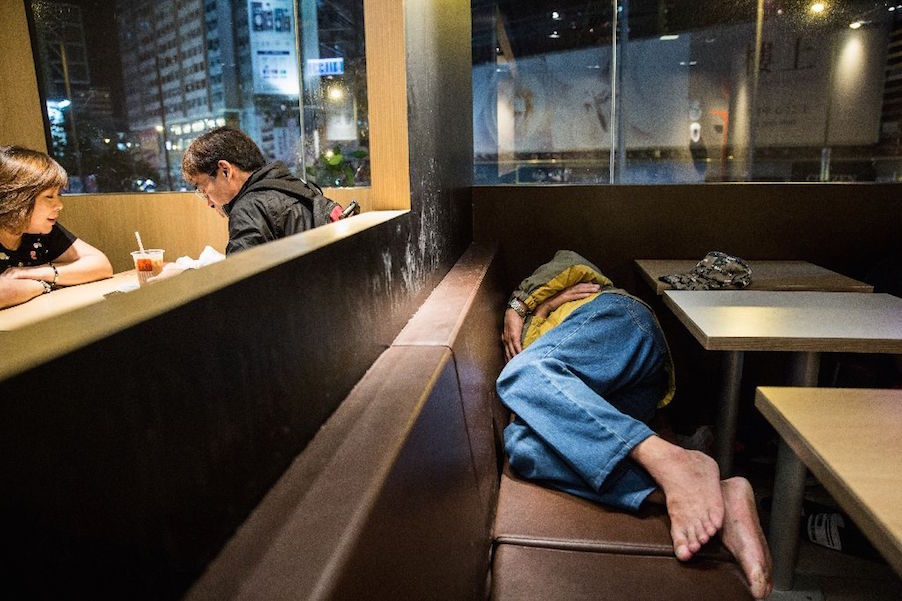The number of Hongkongers staying overnight in McDonald’s restaurants has risen sixfold in five years, new research reveals.
Conducted in June, the study by Junior Chamber International’s Tai Ping Shan branch found some 334 people sleeping at outlets of the American fast food chain, aged between 19 and 74.
Of the 110 branches in Hong Kong that operate 24 hours, 84 hosted overnight sleepers, according to the survey, conducted by volunteers.
The figures mark a six-fold increase from a similar study in 2013, which found only 57 so-called “McRefugees” or “McSleepers” sheltering in the popular restaurants. A 2015 study found 256 such people.
Though the rising trend comes amid Hong Kong’s ever-increasing housing prices, the phenomenon wasn’t as straightforward as homeless people seeking shelter, Jennifer Hung, of JCI Tai Ping Shan, told Coconuts Hong Kong.
Volunteers conducted interviews with 53 “McRefugees” and found more than 70 percent actually had a home elsewhere — either public or private or subdivided housing. About 60 percent, meanwhile, said they had a job.
Hung said, as well as money problems, interviewees often cited the poor conditions of their homes, particularly subdivided and windowless “coffin” flats, which overheat in summer, as a reason they stayed at McDonald’s.
“The electricity fee is too high and they couldn’t afford to have air-conditioning,” Hung said.
She said a lack of family support, sometimes stemming from disputes or abuse, was also often a factor.
“Only 40 percent [of the respondents] said they were still in contact with family members. 60 percent said they had no connection anymore,” said Hung.
Other findings included signs that women and those under 25 were increasing as a percentage of McRefugees.
“The majority of them are middle aged people, but there is an increasing trend of younger people,” she said.
Interviewees were diverse.
Among those who spoke to researchers was a 19-year-old who’d fallen out with his family, a woman in her 50s who was attempting to escape from an abusive husband, and a Chinese traditional medical practitioner who had fallen on hard times after his working hours were cut.
Hung also recalled a lady in her 60s, who, with a well-kept appearance and diamond ring, did not present the typical image of a “McRefugee.”
The woman was a widower who sought out company at the restaurant, she said.
“She doesn’t have children and her husband passed away. She feels so lonely, she has no place to go. When she is in her home, in a public housing flat, there’s no one to talk to,” Hung said.
“We find people are poor not only for their economic situation, they are poor in their soul.”




